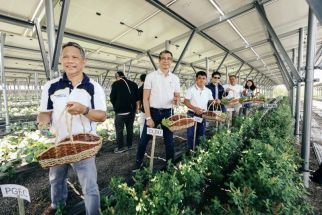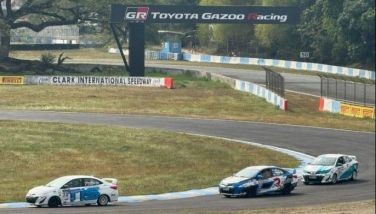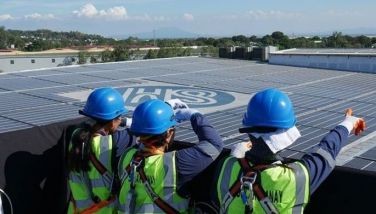Is protectionism the solution?

With the Philippines facing the grim prospect of skyrocketing unemployment as a result of the global recession, some pundits say it is high time our government takes steps to protect local industries and for Filipinos to patronize only their own products.
Protectionism is indeed creeping back in many parts of the world because of the economic crisis. It is an economic policy that not just involves tariffs on imported goods and restrictive quotas, but also other restrictive government regulations aimed at discouraging imports and promoting local products.
The time is now to support the Filipino entrepreneur, says Dr. Felipe Medalla, a former economic planning secretary. Sen. Francis Escudero, meanwhile, believes buying local products is a fail-safe way to keep jobs and hire more, create businesses, increase tax collections, conserve dollar reserves, retain talents, prevent factory closures and kill smuggling.
In the US, an economic stimulus measure was recently in the spotlight as it contained protectionist “Buy American” incentives. With the US government using public money to bail out banks, automakers and many other companies hit hard by the financial crisis, there were expectations that politicians would heed calls by American voters to protect their local industries from foreign competition.
Such move, however, did not sit well with other major economies including China, the UK, Germany and France.
Wrong answer
Protectionism is the wrong answer to the economic crisis, German Chancellor Angela Merkel has argued. A similar warning came from the head of the International Monetary Fund, Dominique Strauss-Kahn, who said in a recent speech in Tokyo: “Beggar thy neighbor policies will never give a good result.”
Germany, being the world’s top exporter, is naturally uncomfortable with the US push towards protectionism
US efforts to shore up the American economy are welcome, said Chinese leader Hu Jintao, but he also warned against any move toward protectionism.
Economic prescriptions
Despite the harsh effects of the current crisis on many Philippine industries, it is hard to imagine this country adopting policies that will restrict imports, especially given its adherence to the economic prescriptions of the World Bank and the IMF which promote free trade and its commitments to the World Trade Organization (WTO).
In fact, tariff barriers have been lifted for some products, including cement and wheat. Local sugar producers, meanwhile, will likely be facing stiffer competition unless the government moves to retain the tariff – which will be down to zero by next year – on highly-subsidized imported sugar.
This has prompted Senator Loren Legarda, who chairs the chamber’s committee on agriculture, to call for a review of the country’s tariff liberalization program for agricultural products and the country’s minimum access volume commitments under the WTO.
When the country acceded to the WTO in 1994, she said the government may have failed to realize that free trade can be a double-edged sword. While markets have been opened for Philippine exports, she said the government has failed to provide local producers with support that would enable them to compete.
From 60 percent in 2001, the level of tariff protection for sugar has gone down to 38 percent. Under the ASEAN Free Trade Area tariff schedule, tariff protection for sugar will have to be cut further by 10 percent this year and down further to zero tariff in 2010, unless the product is reclassified as a highly sensitive import.
Legarda believes there is room for tariff protection to the extent that domestic prices are shielded from dumping in the international market, and that the interests of downstream industries such as the food manufacturers should also have to be considered in the overall balance.
The lifting of the tariff barrier on imported cement has also drawn criticisms from various sectors.
President Arroyo signed in November last year an executive order removing the import duty on the item for six months “to ensure the stability of prices and adequacy of the supply of cement for government’s infrastructure programs including low-cost/mass housing projects.”
The Philippines imposes a three-percent tariff on cement imports from within the Association of Southeast Asian Nations. For non-ASEAN countries or those with most favored nation status, the duty is normally five percent.
Arroyo signed the EO despite a warning from the Cement Manufacturers Association of the Philippines that removing the tariff would result in the dumping of imported cement and would compromise jobs of 120,000 workers directly and indirectly employed by the local industry.
Where to?
Is protectionism really the way to go?
In the rush to find effective tools to shield our economy from the ill effects of the global recession, some sectors are pushing for the adoption of what may be tantamount to protectionism.
There is nothing wrong per se with protecting our local industries. And there are likewise benefits to opening our doors to other countries’ products. In the former, it must never be at the expense of consumers such that they end up paying more pesos for a product that can be imported at a much lower cost.
In the latter case, we must ensure that global trade is conducted on a level playing field. It is so easy for imports to be priced at artificially low prices because of the abnormally huge subsidies by other countries’ governments.
On the other hand, our government must do its share in helping our farmers and fishermen by providing the most basic infrastructure such as farm to market roads that are needed to enable them to bring their products to the local market at competitive prices.
Collegiate Champions League update
There are still some copies left of the colorful PCCL-KFC 2009 calendars. For those who want free copies, please log in at the PCCL official website, www.CollegiateChampionsLeague.net.
Should you wish to share any insights, write me at Link Edge, 25th Floor, 139 Corporate Center, Valero Street, Salcedo Village, 1227 Makati City. Or e-mail me at reydgamboa@yahoo.com. For a compilation of previous articles, visit www.BizlinksPhilippines.net.
- Latest
- Trending


























